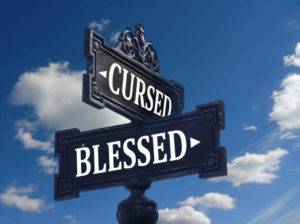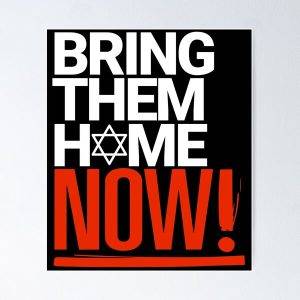Category: Prayer
Shabbat Shalom
The incomparable Neshama Carlebach shares her beautiful rendition of Yehi Shalom.
Wishing everyone Shabbat Shalom, and may peace come soon to all.
Shabbat Shalom
Playing for Change has used music to share our humanity and the transcending power of music across cultures and nations.
Redemption Song is one of Bob Marley’s great gifts.
Freedom and Peace is our hope.
Bring them Home!
Shabbat Shalom
Bring Them Home Now
This is the mantra we need to keep repeating in every conversation. Our people must be brought home as the basis for any negotiation.
Many hostages have perished, all have endured unspeakable suffering, and we presume those still alive continue to be abused. This is the moral basis for the continued war on Hamas.
Although Hamas does not care about the killing and destruction inflicted on the Palestinian people and crudely, cynically positions the hostages and the Palestinians as bargaining chips in political maneuvering, we care about them and will continue to fight against the forces of barbarism until our people come home.
I pray for peace, and I pray for the end to the pain and suffering. Bring them home, and then we can take steps toward ending hostilities.
Shabbat Shalom
We welcome Shabbat as we experience the heartbreak of war.
May we find some peace this Shabbat.
Shabbat Shalom
Shabbat Shalom
In our welcome of Shabbat, we share Ana BeKoach, a prayer asking we be released from the spiritual, emotional, and physical things that bind us. It invokes the power of God’s name through Jewish mysticism. In this troubling time, may we be freed.
Shir Appeal shares its acapella rendition with us here.
Shabbat Shalom
As we welcome Shabbat and the secular New Year, I wanted to share this poignant song from Benaia Barabi “Zeh BSeder” It’s Okay sung with survivors from Nova.
May we find peace this year.
Shabbat Shalom
Am Yisrael Chai- Shabbat Shalom
Chanukah has finished, and almost Shabbat is here.
The Maccabeats share a great song to take us into Shabbat.
Shabbat Shalom
Heal Us Now
As we celebrate the holiday of light and welcome Shabbat,
We struggle through this darkness and together we will get through.
Yachad Nenetzach
Chag Urim Sameach
Shabbat Shalom
Where do we go from here?
The situation is fluid, and things are different from what we thought. We have come to an inflection point, and what happens next depends entirely on how boldly we are willing to consider acting.

It is relatively easy to kill people but almost impossible to kill an idea. Hamas has shown it knows no limit to the extent it will go to achieve the dual goals of killing Jews and eliminating Israel.
Israel thought it could manage the situation, lulling Hamas through what are essentially bribes and occasionally “mowing the lawn,” that obscene notion that periodically Israel engages in a military action to repress the militants. This is similar to blowing on the boiling pot of pasta to keep it from boiling over.
The pot boiled over, and the ensuing pogrom was devastating.
Furthermore, Hamas retains substantial control. The delay in releasing hostages on Day 2 of the truce showed their continued capacity to manage the situation psychologically. Equally distressing was the celebration in the West Bank because the jubilant welcome home to the released prisoners was met with Hamas flags instead of only Palestinian flags. A weak Palestinian Authority is losing control, and Hamas is ascendant.
And an uncontrolled group of Jewish right-wing extremists is engaging in violence against Palestinians that could only be understood as ethnic cleansing of the territory.
The situation is dire and requires bold action.
Strangely, a scene from The Godfather movie keeps running in my mind. As Don Corleone grieves his murdered son, he looks up and, from the depth of his pain, declares the killing has to stop. Peace is required even though vengeance courses through the blood. For us, this is that moment.
The killing must stop. Recognition by each side is required, and we must forge a way forward. Is Israel able to do this, and if so, who is courageous enough to make that declaration and commitment?
We’ve learned that ignoring the other side and building walls is not a solution. Walls cannot be high enough or thick enough to provide security. We also cannot do it alone.
Many are vested in maintaining the status quo of hostility, hatred, and turmoil. But others have a clear interest in seeing peace in the region. These nations need to join in the effort to work with Palestinians and Israelis to build trust and an infrastructure of hope. Together, we can realize a vision of dignity and security for both people who claim a right to the region. And those who envision a future for their children to live in a world without violence must be convinced we are all committed to their future. Building trust out of the rubble of destruction and pain that now exists will take time. But now is the time to start.
The killing must end, and now is the time to start on a path forward.

